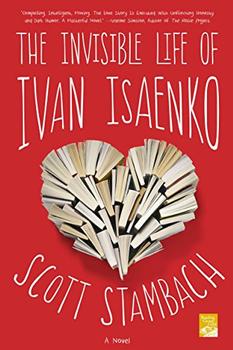Summary | Excerpt | Reviews | Beyond the book | Read-Alikes | Genres & Themes | Author Bio

Red Plenty is history, it's fiction, it's as ambitious as Sputnik, as uncompromising as an Aeroflot flight attendant, and as different from what you were expecting as a glass of Soviet champagne.
Strange as it may seem, the gray, oppressive USSR was founded on a fairy tale. It was built on the twentieth-century magic called "the planned economy," which was going to gush forth an abundance of good things that the lands of capitalism could never match. And just for a little while, in the heady years of the late 1950s, the magic seemed to be working. Red Plenty is about that moment in history, and how it came, and how it went away; about the brief era when, under the rash leadership of Khrushchev, the Soviet Union looked forward to a future of rich communists and envious capitalists, when Moscow would out-glitter Manhattan and every Lada would be better engineered than a Porsche. It's about the scientists who did their genuinely brilliant best to make the dream come true, to give the tyranny its happy ending.
Red Plenty is history, it's fiction, it's as ambitious as Sputnik, as uncompromising as an Aeroflot flight attendant, and as different from what you were expecting as a glass of Soviet champagne.
Paperback original
Since the author's overarching focus is on the collapse of the Soviet planned economy, the book contains a fair amount of economic theory. The first chapter is pretty difficult to get through, but stick with it - the novel is fantastic, and Spufford's creative narrative device is a winner. None of his writing is dry or boring - Spufford couches these theories and history lessons wonderfully through his characters' stories - however there are portions that require careful reading...continued
Full Review
 (773 words)
(773 words)
(Reviewed by Poornima Apte).
One of the most fascinating byproducts of the Russian planned economy is the academic town of Akademgorodok (Ah-kah-DYEM-gor-oh-dok) in Siberia. It is approximately 30 kilometers south of the larger Siberian city of Novosibirsk (No-VO-see-beersk), and is the setting for some of Red Plenty's most riviting stories, featuring a genetics and cytology researcher named Zoya Veynshteyn.
 Looking to populate Siberia and avoid the bureaucratic interference of Moscow, while creating a haven for the sciences at the same time, Russian premier Nikita Kruschev supported the creation of Akademgorodok (aka Academy Town) in 1958 as a part of the network of research centers known as the Soviet Academy of Sciences. Hydrodynamicist Mikhail Alexeyevich ...
Looking to populate Siberia and avoid the bureaucratic interference of Moscow, while creating a haven for the sciences at the same time, Russian premier Nikita Kruschev supported the creation of Akademgorodok (aka Academy Town) in 1958 as a part of the network of research centers known as the Soviet Academy of Sciences. Hydrodynamicist Mikhail Alexeyevich ...

If you liked Red Plenty, try these:

The Invisible Life of Ivan Isaenko
by Scott Stambach
Published 2017
The Invisible Life of Ivan Isaenko is comic and staggeringly tragic, often both in a single sentence… A grittier, Eastern European, more grown-up The Fault in Our Stars." – Eowyn Ivey, author of The Snow Child

by Rosemary Sullivan
Published 2016
A painstakingly researched, revelatory biography of Svetlana Stalin, a woman fated to live her life in the shadow of one of history's most monstrous dictators—her father, Josef Stalin.